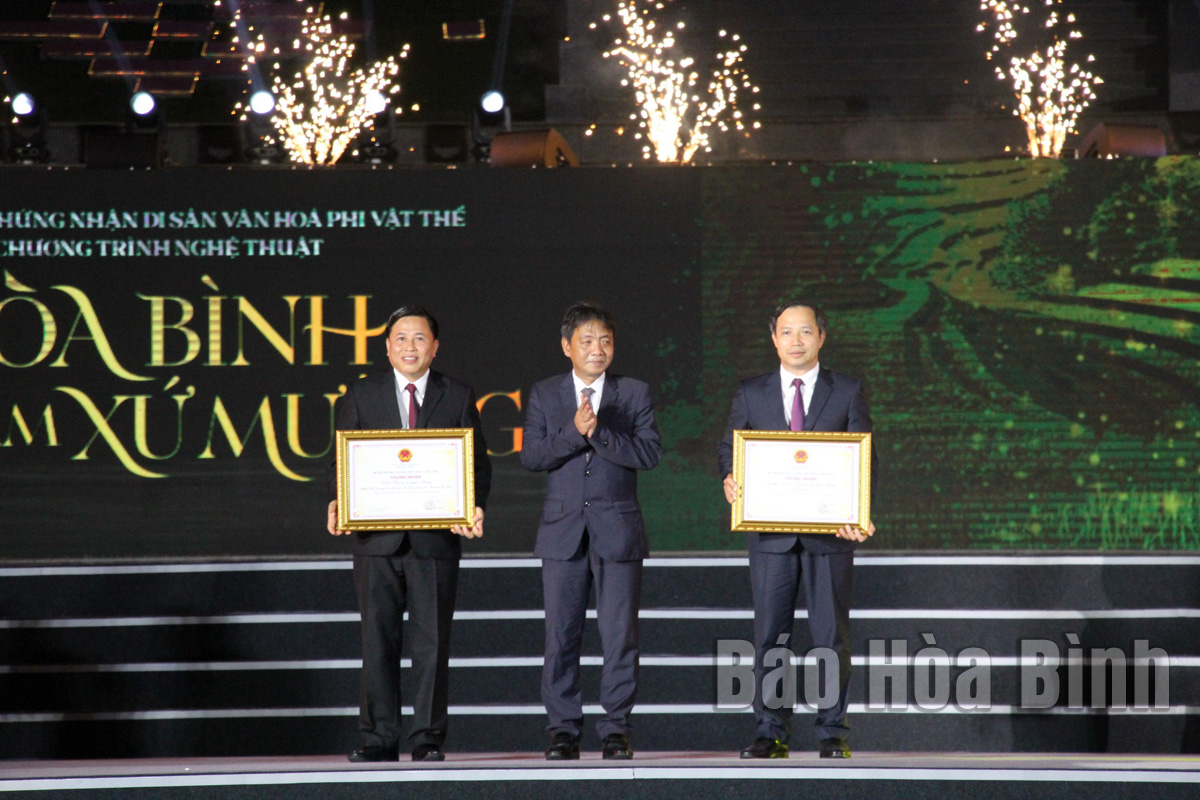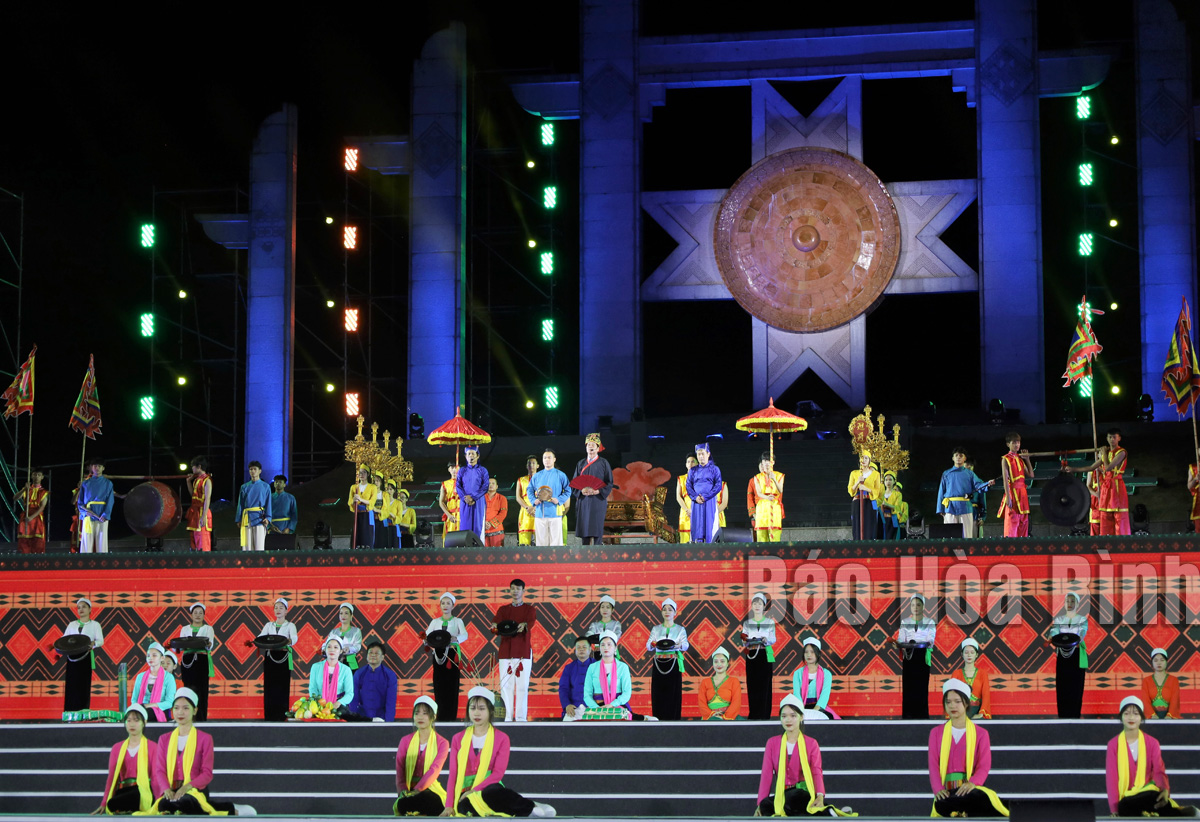
(HBO) – Hoa Binh is a land of a long-lasting history and culture associated with the national construction and defence. It houses six main ethnic groups – namely Muong, Kinh, Thai, Tay, Dao, and Mong, of which the Muong account for more than 63% of the population.
Hoang Dao Cuong, Deputy Minister of Culture, Sports and Tourism, hands over certificates accrediting Hoa Binh’s bamboo calendar knowledge and Khai ha festival as national intangible cultural heritages.
The Khai ha festival of Muong people in Hoa Binh province reenacted at a local event in 2022.
In the field of culture, the province currently has a total of 786 intangible cultural heritages. Annually, it organises more than 60 festivals, which is a great potential to exploit and promote serving the local socio-economic development, especially in tourism.
The Khai ha festival of the Muong ethnic group in Hoa Binh is the biggest and oldest traditional folk event indispensable to the community on the occasion of the lunar new year.
It is now the fourth in the province to be recognised as a national intangible heritage. Such recognition honours the contributions by residents in the local four big Muong areas – Bi, Vang, Thang, Dong (now the districts of Tan Lac, Lac Son, Cao Phong, and Kim Boi). It forms a ‘trademark’ for the province, helping to popularise its heritages domestically and internationally. The local protection and promotion of the heritage is also benefited.
In the time to come, Nguyen Phi Long, alternate member of the Party Central Committee and Secretary of the provincial Party Committee, suggested the local authorities, competent agencies, researchers, cultural managers, and locals make further efforts to promote the role and responsibility of the Muong community and to introduce to domestic and international friends the land, people, and cultural identity of Hoa Binh.
He noted that heritage-owning localities should pay attention to building promotion and communications programmes; creating favorable conditions for artisans in teaching heritage values in the community; and mobilising resources for the collection, preservation and publication of ancient documents related to all types of heritage in general.
The People's Committee should make proposals to the People's Council concerning the implementation of mechanisms and policies to preserve and develop specific cultural values of the province, the official said./.
With an increasingly vibrant and widespread emulation movement aimed at building cultured residential areas and cultured families, Yen Thuy District has been making steady progress toward improving both the material and spiritual well-being of its people, while fostering a civilized, prosperous, beautiful, and progressive community.
Once lacking recreational spaces and community facilities, Residential Group 2 in Quynh Lam Ward (Hoa Binh City) has recently received attention for the construction of a new, spacious, and fully equipped cultural house. The project followed the model of state support combined with public contributions in both labor and funding.
The "All people unite to build cultural life" movement, which has been effectively integrated with Kim Boi district’s socio-economic development goals, is fostering a lively spirit of emulation across local residential areas, hamlets, villages, public agencies, and enterprises. In addition, through the initiative, traditional cultural values are being preserved and promoted, while community solidarity and mutual support in poverty reduction and economic development are being strengthened.
A working delegation of the Hoa Binh provincial People’s Committee led by its Permanent Vice Chairman Nguyen Van Toan on June 11 inspected the progress of a project to build the Mo Muong Cultural Heritage Conservation Space linked to tourism services in Hop Phong commune, Cao Phong district.
Born and growing in the heroic land of Muong Dong, Dinh Thi Kieu Dung, a resident in Bo town of Kim Boi district, in her childhood was nurtured by the sweet lullabies of her grandmother and mother. These melodies deeply imprinted on her soul, becoming an inseparable part of her love for her ethnic group's culture. For over 20 years, this love for her hometown has driven Dung to research, collect, and pass down the cultural values of the Muong people to future generations.
In the final days of May, the Ethnic Art Troupe of Hoa Binh Province organized performances to serve the people in remote, mountainous, and particularly disadvantaged areas within the province. These were not just ordinary artistic shows, but they were the meaningful journeys aimed at spreading cultural values, enhancing the spiritual life of the people and contributing to the preservation of ethnic minority cultural identities.




